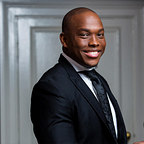How to say, “NO!” to an investor
The trouble with being a principled entrepreneur (and in this modern day, person frankly) is that people often see this as a source of weakness that they can exploit, extort or abuse.
I invested in a Cape-based start-up a couple of years ago. The trouble with the investment from the onset was that it was a syndicated deal (simply this means that more than one investor was involved) and syndicated deals always bring problems. Every investor takes a different approach and holds dear a specific philosophy when making the investment decision and these are what reign supreme when the investor is taking an investment decision.
Most entrepreneurs never consider this. In the highly regulated and often rigid capital markets, most entrepreneurs are simply so overwhelmed to get the meetings that they never consider asking these questions of the potential investor:
- What is your investment philosophy?
- What is your investment approach?
- Can you show me your tombstones?
- What is your mosaic theory?
- What is your stop-loss strategy & how do you recover losses?
Here is the truth: in developing marketing, the investment community (in particular venture capital as an asset class) is full is people that have not yet themselves thought through these questions. Drafting a PPM, raising capital or managing GPs is but one of the part of the value chain and only answers two of the above questions. Since establishing our fund in the UK, we as a firm — and I as an individual and leader — have had to go through a rapid growth rate in understanding this asset class, venture capital.
The truth is that even with the knowledge leapfrog effect, developed markets like the UK and the US are simply 200 years ahead.
They have had 800 years of trade, 400 years of maritime trade and 200 years of capital markets and modern economics the likes of which developing markets only starting pursuing 60 years ago. We just have to accept that we don’t yet know or understand many of the things we need to build an effective and robust venture capital culture.
Back to the story about the investment?
over the course of the investment — and this is common in the highly risky asset classes like venture capital — we have had to make several recapitalisations of the venture. The trouble is that I assumed that the other investors simply wanted the same things I did: Growth in organic revenues. That growth would drive profitability and the profits would feed a rise in the equity of the business. Ultimately this would build enterprise value and (for me as the investor) a healthy exit multiples. Whilst this seems a simple enough consideration, how you get there is just an important part of the equation. If there is variation in the approaches then navigating the path can be tricky for the individual investors.
Where are we today?
What has since happened is that we have realised that the way we invest (approach), why we invest (philosophy) and when we invest and divest (tombstones) is radically different to some of our co-investors. They want quick metric growth. Metric growth — especially in tech firms — leads to valuation growth. Priced correctly, this will deliver them a healthy exit multiple in a shorter space of time.
We are more Warren Buffet than Gordon Gekko.
We are long-term, controlled growth supported by a real focus on the development of the entrepreneur themselves type of investors. We spend a long time understanding the business of the entrepreneur, diagnosing risks and inefficiencies not only so we can price them but we actually deploy assets to fix these and then we handhold the entrepreneur as they build their business.
What about South Africa?
In South Africa, you’d be surprised how many black equity investors, who understanding the past that black people have come from and how that past has denied them the knowledge of how to build a business, talk about developing black entrepreneurs on their marketing material and websites but when pressed, wouldn’t even have a tested rigourous process that they implement to achieve that aim.
There is this lazy assumption that the investment is the development that the entrepreneur needs.
Entrepreneurs in South Africa need to learn that building a business is tough. It doesn’t happen overnight and the results and gratification are often delayed. The most important decision you will ever have to make in building your business is what kind of capital you will use and what kind of investors you will seek. Don’t simply accept any investor that promises you the world. Some of the most common promises the crude-investors make their prey are:
1. I have a big profile. I will help you build your business and brand.
Test: ask then what process they will follow in doing & can you meet another entrepreneur for whom they have done this.
2. We are for the empowerment of vulnerable groups like women, youth and those with disabilities.
Test: ask them how they price and factor the cost of including these vulnerable groups and how this focus helps you, the entrepreneur, build the business.
3. I will not invest capital but I will take equity in exchange for mentoring you.
This is rubbish. Mentorship is mentorship and investments are investments. Nobody takes seriously an investment where they do not have skin in the game.
Always stand your ground. When you are looking for investment, know what kind of investor you want and don’t settle.
Rather say no to a bad investor.
Vusi Thembekwayo
Venture Capital. Global Business Speaker
